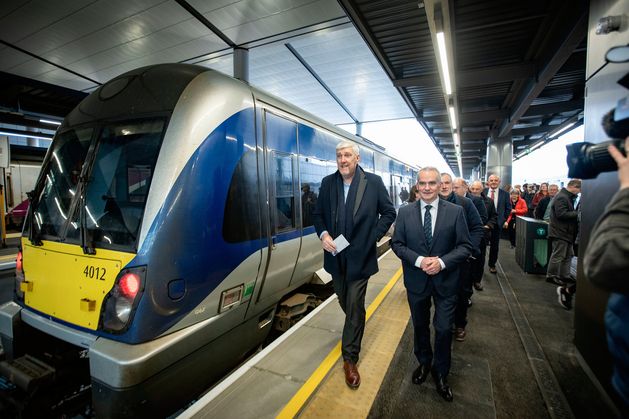The Department for Infrastructure (DfI) said that Mr O’Dowd, who is based in Lurgan, has been “limiting his trips to the city centre to avoid adding to congestion”.
The comments come after increased public outrage at severe traffic delays in Belfast over the past week, including an evening of extended gridlock last Thursday evening, and on Sunday afternoon coming into the city.
Mr O’Dowd has repeatedly suggested that commuters should get out of the car and use public transport when congestion issues first arose amidst the opening of the new £340m Grand Central Station two months ago.
A department spokesperson stated: “The Minister works in the city centre at most two days a week, working the other days either in the Assembly, out and about on visits or remotely. By limiting his trips into the city centre the Minister avoids adding to the congestion.
“Due to the confidential and often highly sensitive nature of Ministerial and Executive business public transport is not usually a viable option for Ministerial travel. Where the Minister can use public transport, he does so.”
The SDLP’s Matthew O’Toole called Northern Ireland’s bus network “a disaster” – so much so it is preventing people from leaving their cars at home.
Mr O’Dowd said he would give more money to subsidise Translink fares if he could, but that the funds simply don’t exist.
A spokesperson for the DfI told this newspaper that the department is continuing to work with partners to “undertake a range of mitigation measures to help ease traffic congestion in Belfast city centre”.
Mr O’Dowd will also consider proposals to help ease Belfast traffic congestion put forward by a group representing taxi drivers, including legislation which permits some to use bus lanes.
Speaking to The Belfast Telegraph, road traffic expert, Wesley Johnston, said that there is “no quick fix” to Belfast’s ongoing congestion problems.
“Traffic is always bad in the city centre coming up to Christmas, as we all know, and on Thursday night what made it worse was we had several crashes across spots.
“Our road network is very small and if any one of the major areas is affected, then it doesn’t take long for traffic to back up,” he said.
“It’s really that the network is functioning at capacity. It basically absorbs what is on it, so anything at all really delays it up.”
Mr Johnston also suggested the possibility of knowing down multiple buildings to create more roads, or making more realistic ways for people to use public transport.
“It’s not a matter of just telling people to get the bus; we need to make that more attractive and easier,” he added.
“There is no quick fix. The pausing of roadworks will help, but the only solution really is a period of extended investment in road traffic networks and public transport.”

